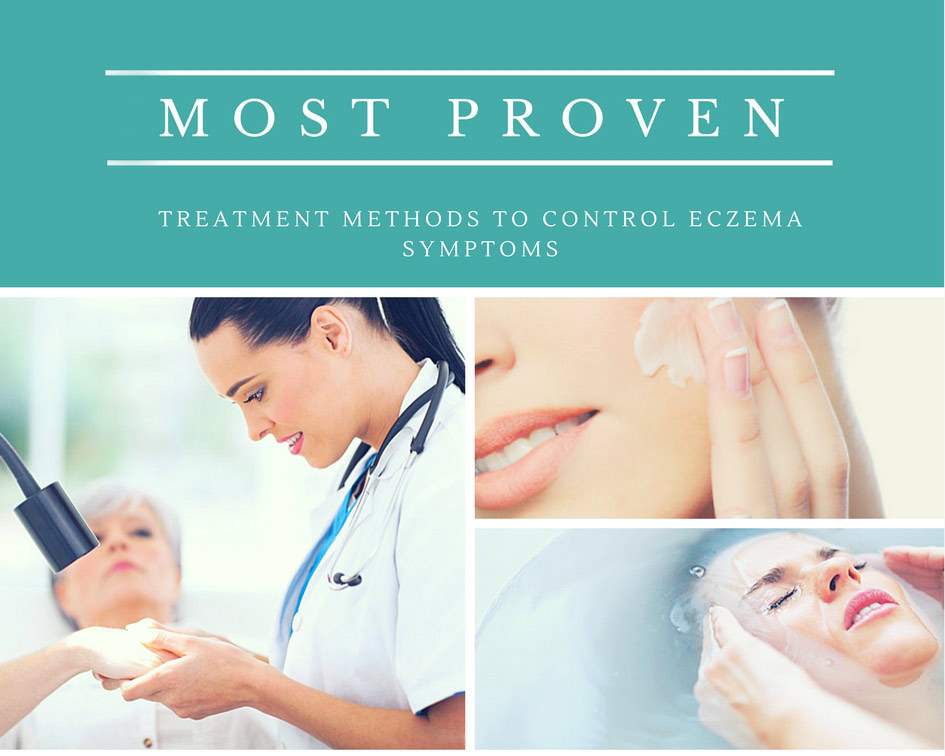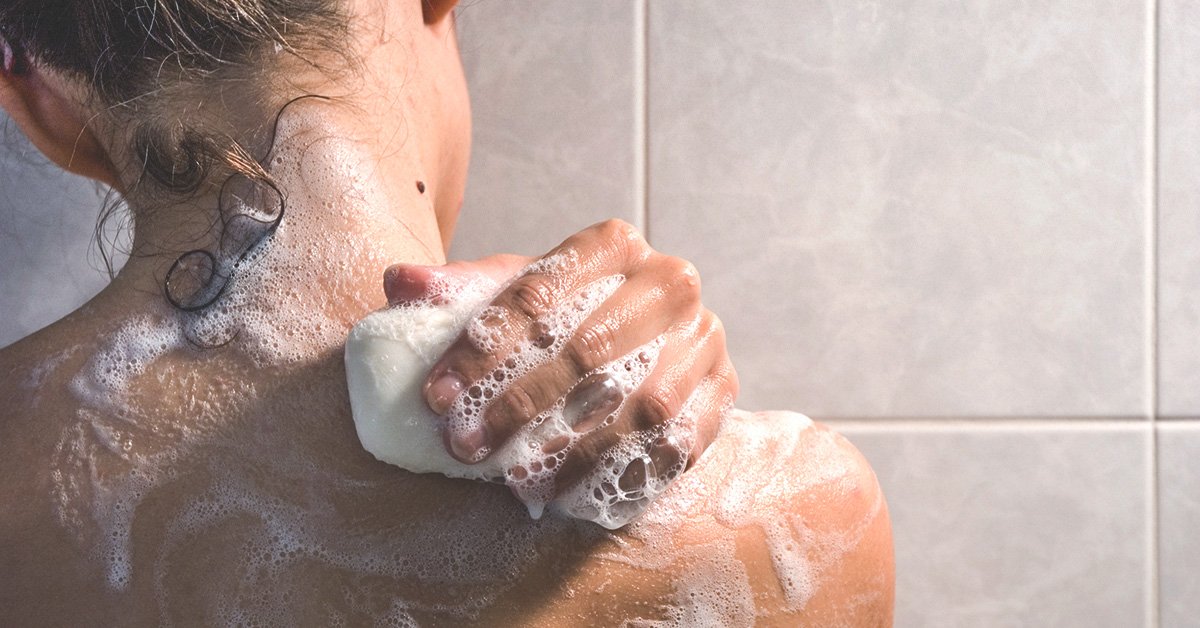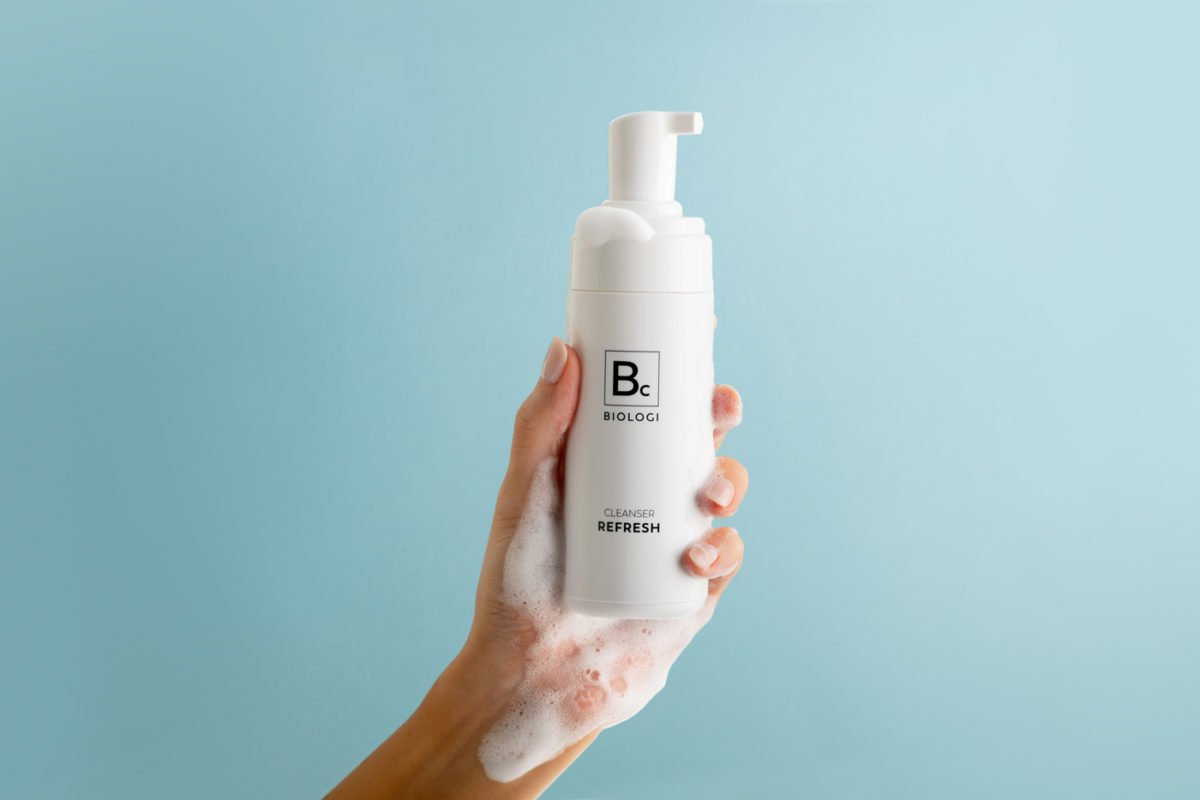Get Serious About Moisturizing
Hydrating regularly with a heavy-duty ointment or cream achieves two important things. First, it eases dryness that can lead to itching. Second, it acts as a barrier to block out potential irritants that can make you more uncomfortable or up the risk for infection.
Reach for a dense moisturizer or petroleum jelly, and again, steer clear of anything containing dyes or perfumes. Slather the stuff on within a minute or two after bathing and reapply as often as you feel like you need it.
For serious rejuvenation for hands and feet, apply before bedtime and slip on some cotton socks or gloves. Get a solid 78 hours and wake up to refreshed skin.
What Causes Atopic Eczema
Atopic eczema is a complex condition and a number of factors appear important for its development including patient susceptibility and environmental factors. Patients typically have alterations in their skin barrier, and overly reactive inflammatory and allergy responses. Environmental factors include contact with soaps, detergents and any other chemicals applied to the skin, exposure to allergens, and infection with certain bacteria and viruses. A tendency to atopic conditions often runs in families and is part of your genes. An alteration in a gene that is important in maintaining a healthy skin barrier has been closely linked to the development of eczema. This makes the skin of patients with eczema much more susceptible to infection and allows irritating substances/particles to enter the skin, causing itching and inflammation. AE cannot be caught from somebody else.
Tend To Your Environment
Dealing directly with your skin is one way to tackle eczema flare-ups, but its also important to tend to your environment and make it as soothing and trigger-free as possible. This is important for both preventing as well as managing flare-ups.
What do we mean by your environment? Everything! For example, the clothes you wear, the air in your home, the activities you participate in, and what you put on your skin.
That said, of course there are aspects of your daily environment that you cant control .
But here are just a few tips for managing what is under your control:
- Run a humidifier at home to add moisture to the air
- Clean and dust often to do away with triggers like dust, pet dander, and mold
- Wear loose-fitting clothing that doesnt rub against your skin
- Stay away from irritating fabrics like wool
- Avoid overheating by staying cool and wearing layers of clothing
Don’t Miss: What Detergent To Use For Eczema
How To Reduce Eczema Flare
A form of dermatitis, eczema affects many people around the world. This is a skin condition that is characterized by patches of skin that are red, dry, and itchy on the body. It is something that can be treated, but not cured. Hence, those who suffer with this condition can only hope to make it go into remission as often as possible. On the other hand, the only other thing you can do is choose a treatment plan and stick to it because managing it properly will make it much easier to cope with.
Here are some of the best things you can do to reduce eczema flare-ups:
Ask Your Doctor About Skin Infection Risk

Because eczema patients have a weak skin barrier, they are at greater risk for skin infections like staph or the herpes simplex virus.
“Bacteria like to live on eczema-prone skin like a parasite,” Kim says, adding that one sign of infection is when skin becomes oozy and crusted.
One remedy to treat infections is an antibiotic ointment like bacitracin or Neosporin, which you can find in most pharmacies. These ointments are able to kill bacteria like staph and allow skin to begin healing.
If topical antibiotics aren’t helping, your doctor may also prescribe oral antibiotics, Kim says. When using topical or oral antibiotics, you should always consult with your doctor to determine how often and how long you should take them.
Also Check: Best Face Cream For Facial Eczema
Emollients For Treating Eczema
Emollient creams add moisture to the skin. Apply moisturisers each day to clean, dry skin. It is especially important to moisturise after showering and bathing, and when living or working in an air-conditioned or heated environment. You may need to try several different brands until you find the emollient that works best for you. Ask your doctor, dermatologist or pharmacist for advice.
Stay Cool Avoid Sweating And Drink Enough Water
Trying to minimize sweating is an obvious first line of defense. Staying cool by avoiding excessively warm temperatures and reducing sweating are the most important strategies, Dr. Friedmann says. That might mean sticking to the shade when youre outside or staying indoors in an air-conditioned environment when the temperatures climb, Bard notes. Be sure to drink plenty of water, too. That will keep your body at a normal temperature, according to the Centers for Disease Control and Prevention . And opt for loose-fitting clothes in breathable fabrics .
Also Check: Psoriasis And Eczema Treatment Center Of Western Michigan
Dealing With Dyshidrotic Eczema
Take A Colloidal Oatmeal Bath
Colloidal oatmeal contains natural emollients that calm red, inflamed skin and ease uncomfortable irritation. Its available as a finely ground powder thats easy to sprinkle into a warm bath.
To reap the most benefits, soak for 1015 minutes, then gently pat your skin dry with a towel and apply your favorite heavy-duty moisturizer.
Don’t Miss: Prescription Strength Hydrocortisone Cream For Eczema
How To Prevent And Soothe Eczema Flare
Eczema can be a tricky and unpredictable condition not to mention straight-up unpleasant! The truth is that it may be manageable for quite some time when suddenly your old frenemy strikes: an eczema flare-up.
Theres no sure-fire treatment for eczema, so the name of the game is doing what you can to prevent flare-ups and soothe your skin when they happen. In this article, well give you some tips to do just that and do it naturally with no harsh chemicals involved.
But first, a quick review. What is an eczema flare-up?
Invest In A Quality Cream Lotion Or Moisturizer
For some, it may be coconut oil and for others a generic store brand. When it comes to your skin, you really need to see which products work best, then buy your favorites in bulk. A quality skincare product makes all the difference in the world. No one wants to feel greasy and leave marks on everything they touch. They also dont want to have to re-apply this product every five minutes.
Read Also: Tubby Todd Cream For Eczema
Creams And Topical Treatments For Eczema
Breadcrumb
Fewer eczema flare-ups and less itching are possible! Although there is no cure for atopic eczema , we can offer soothing relief from flare-ups and make them less frequent with the right treatment: cortisone cream + emollient.
Topical treatment is essential and produces excellent results, provided it is applied correctly.
It is an anti-inflammatory of the calcineurin inhibitor family: it will represent a possible alternative to dermocorticoids. The only difference with dermocorticoids is that it is applied twice a day.
When is it applied? For recalcitrant eczema on the face, especially the eyelids or other sensitive skin areas. Sometimes it is poorly tolerated in flare-ups: you must persevere, because after a few days the intolerance disappears. It can be recommended to initiate treatment with cortisone cream before initiating tracolimus creams.
This page discusses the treatments for atopic eczema. Allergic eczema is treated differently.
General Tips For Coping With Eczema

Other tips to manage your eczema include:
- Keep your fingernails short longer nails are more likely to injure your skin when you scratch.
- If the water in your area is hard or alkaline, consider installing a water-softening device.
- Swim in the sea in warm weather whenever you can seawater is known to reduce the symptoms of eczema.
- Use sun exposure for limited periods for example, when swimming at the beach. This can help relieve eczema symptoms. But be aware that ultraviolet radiation is a risk factor for skin cancer and premature ageing of the skin. Also, if sun exposure causes overheating, this can also aggravate eczema.
You May Like: Itchy Bumps On Skin Eczema
Eczema Risk Factors Causes & Symptoms
As a matter of fact, there is a wide range of causes and risk factors associated with eczema. And, eczema symptoms can manifest widely differently between those affected. While a singular cause of eczema has not been established, there are certain common causes leading to the onset and flares. In addition, a wide range of risk factors has been identified.
Risk Factors for Eczema
- Temperature changes
Symptoms of Eczema
While many will experience a lessening of symptoms and fewer flares as they age, some will continue to experience eczema symptomsthroughout adulthood, such as atopic eczema rashes. Symptoms can range from mild to severe, and change from one outbreak to another. Common symptoms include:
- The appearance of small, raised bumps which may ooze liquid and develop a crust
- Thick, dry, scaly skin that cracks
- Red, brown or grayish patches of skin on hands, feet, ankles, wrists, neck, upper chest, eyelids, in skin folds, and on the face and scalp of infants
- Sensitive skin that is swollen and raw from scratching
- A recurring rash that causes intense itching, often disrupting sleep patterns
- Rashes due to atopic eczema
What Causes Eczema To Flare
Our older son hasnt had eczema show up in a while, so weve taken him off his allergy medication. Changing medications and routines will cause reactions. Though, our biggest issue has been skipping moisturizing sessions.
Today I found scarred up eczema patches behind his knees.
The broken red itchy skin always makes me sad. I felt a little guilty not treating it before he scratched through the night. But this just goes to show its not easy to keep up the routine and get it right every time. Trust we will be getting back into a better moisturizing routine.
If you are wondering what causes eczema to flare up read all about eczema to get an idea of what it is and why it happens. Once you understand why it happens you can start to see what changes may have caused a flare-up.
Here are a few things that can cause eczema to flare up again:
- New routine
- New fabrics in clothes or sheets
Also Check: How Do You Treat Eczema On Your Face
Q 1: Where Can More Information Be Obtained
Nip Allergies in the Bub
Patient support organisations : www.allergy.org.au/patients/patient-support-organisations
ASCIA is the peak professional body of clinical immunology/allergy specialists in Australia and New Zealand
ASCIA resources are based on published literature and expert review, however, they are not intended to replace medical advice. The content of ASCIA resources is not influenced by any commercial organisations.
Skin: Condition: Infomation Bandaging
Cotton bandages and cotton or silk vests/leggings worn on top of creams can help keep creams from rubbing off and stop scratching. Sometimes these may be applied as Wet wraps which can be useful for short periods. Wet wraps can upset babies/young children because they can become too cold. For some patients the use of medicated paste bandages may be helpful, as they are soothing and provide a physical barrier to scratching. It is important to be taught how to use the dressings correctly. Your doctor or nurse will advise you regarding the suitability of the various bandages and dressings available.
You May Like: Can Stress And Anxiety Cause Eczema
Skin: Condition: Infomation Antibiotics And Antiseptics
If your AE becomes wet, weepy and crusted, it may be infected and a course of antibiotics may be needed. Antiseptics, when applied to the skin alone or as part of a moisturising preparation, can be helpful in stopping the infection. Incorrect use of antiseptics can, however, irritate the skin and make AE worse. Antiseptics should not be used continuously because this can result in excessive drying of the skin.
When Your Skin Becomes A Battlefield
Don’t Miss: Eczema And Allergies In Toddlers
Control Inflammation Under Your Skin
If your eczema is mild, your dermatologist may advise you to use hydrocortisone or topical ointment made with corticosteroids to help reduce symptoms.
If youre experiencing an infection from a flare-up, then you may also receive a prescription for antibiotics.
In moderate to severe cases, stronger prescription steroid ointments may be needed to prevent flares and calm inflammation under the skin.
Additional therapies for chronic eczema include:
- Immunomodulators medicines that suppress the activity of your immune system
- Biologics medicines made from substances that naturally occur
- UV light or phototherapy
What Causes Adult Eczema

Although the cause is not completely understood, its thought that variations in certain genes affect your skins ability to protect itself from irritants. Certain environmental substances trigger an immune response that leads to inflammation in and on the skin.
Triggers may include:
- Allergens, such as pet dander
- Certain foods or ingredients that can cause inflammation, such as dairy, gluten and sugar
- Cigarette smoke and environmental chemicals
- Infections
- Stress
Don’t Miss: Aveeno Baby Eczema Therapy Lotion
Eczema Treatment: 13 Ways To Find Relief
While there is no cure for eczema, there are a variety of non-invasive eczema treatment options that can provide relief during a flare-up and some that may prevent its onset. These can include corticosteroids, but the following home eczema treatment options may be best.
1. Light Therapy/Phototherapy
According to the National Eczema Association, phototherapy helps to calm inflammation, reduces itching, increases vitamin D production and helps fight bacteria on the skin. Adding 1015 minutes a day of sun exposure, particularly during an eczema flare, can provide relief and potentially speed healing.
2. Vitamin D
In addition to increasing sun exposure, supplementing withvitamin D rich foods like cod liver oil, sardines, salmon, eggs and raw milk may help prevent eczema in children and adolescents. Ideally, during a flare you will get 2,000-5,000 IU daily if your sun exposure is low, consider boosting your intake with a high-quality supplement. Preliminary research shows that low vitamin D levels during pregnancy and during childhood may increase the risk for developing eczema.
3. Moisturize
Because dry skin is both a cause and symptom, it is imperative to moisturize affected areas at least twice a day. Coconut oil is the perfect moisturizer for eczema sufferers. This eczema treatment is antibacterial and anti-fungal, with antimicrobial properties that provide soothing relief, and may speed healing.
4. Treat the Mind and Body
5. Dead Sea Salt Baths
6. Cool, Wet Compresses
What Foods Should I Eat Or Avoid To Reduce My Risk Of Eczema
The connection between eczema and food allergies is unclear. If you have food allergies, then one of the reasons why you must avoid that food is that it may cause or worsen dermatitis. Examples of common allergies include peanuts, dairy, eggs, sugar, alcohol and gluten. Pay attention to what you eat. If your eczema flares up after you eat a certain food, then you might have an allergy to it.
If you dont have a food allergy then there are no foods, including chicken, that will cause or worsen your eczema.
Don’t Miss: Dr Teal’s Body Wash For Eczema